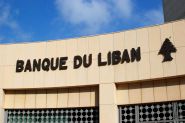
We are currently witnessing unhealthy and, in any case, illegal attempts to cover the debts of Lebanon’s Central Bank (BDL).
Unhealthy, because by adopting a balancing act, an attempt is being made to unjustly designate a scapegoat to bear the burden of the State's obligations to BDL, which amount to $72 billion... How? By highlighting the alleged virtues of the citizen and therefore the saver, or even private banks, who are supposed to contribute to covering the debts, hypocritically invoking the principle of citizenship.
Illegal, because no one can pretend to ignore Article 113 of the Code of Money and Credit in Lebanon, which specifically states that it is the responsibility of the State to settle the debts of BDL.
Stopping this evasive game is imperative. It is indeed unthinkable not to reimburse BDL by the State for credits extended to the Ministry of Finance, for State expenses approved by successive Councils of Ministers and endorsed by the relevant parliamentary committees. Private banks in Lebanon have certainly agreed to invest, but based on instruments issued by the State, enabling credible financing. Unfortunately, this was not the case.
It is important to note that a sovereign debt is contracted by a sovereign party, usually a state. It represents what the government of a country owes. It can be referred to as national debt, country debt or public debt, as the term "sovereign" implies national government.
It is therefore completely irresponsible, and even criminal, to attempt, through strange means, to involve depositors, private banks and BDL in covering the latter's losses. The State must, in this regard, endeavor to take the necessary measures for a complete restructuring of institutions and proper management of public sectors such as ports, airports, fairs, tourism, healthcare, electricity, water and more.
Read more



Comments